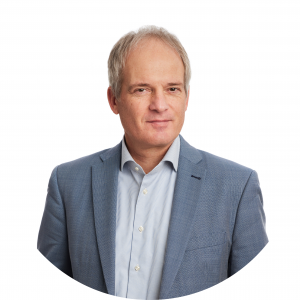Discover the untapped potential within agro-processing waste and revolutionise your approach to sustainability in our workshop on “Valorising Waste in the Agro-processing Sector.” Geared towards agro-industry professionals, entrepreneurs, and environmental enthusiasts, this workshop aims to explore innovative strategies for transforming waste into valuable resources.
Topics covered:

 Potential for Agricultural Waste Processing, a Case Study from Rwanda by Mr. Peter Paul van ‘t Veen, Business Developer I4D at TNO Innovation for Life, and Mr. Mahlon Kyomuhendo, CEO of Agroenable LTD.
Potential for Agricultural Waste Processing, a Case Study from Rwanda by Mr. Peter Paul van ‘t Veen, Business Developer I4D at TNO Innovation for Life, and Mr. Mahlon Kyomuhendo, CEO of Agroenable LTD.
Already in 2019, TNO conducted together with Blue Hill Consultancy an inventory of available agricultural residue streams in Rwanda. Several relevant waste streams were identified including possible processing routes and final products that could be produced. The results of this inventory will be presented by Peter Paul van ‘t Veen from TNO. Following up on this inventory a biomass valorisation centre was established in Rwanda by Mahlon Kyomuhendo, Agroenable Ltd. Main asset is a rotating kiln for pyrolysis of dry biomass streams. Mahlon Kyomuhendo will be present at Africa Works! 2024. He will elaborate on the present activities of Agroenable, the business case for processing agricultural residues, and plans for upscaling in Rwanda.
 Adding More Value to Biomass Residues by Circular Utilisation with Examples from Cashew and Palm Oil by Dr. Wolter Elbersen, Senior Researcher for Biomass and Bioenergy at Wageningen University & Research
Adding More Value to Biomass Residues by Circular Utilisation with Examples from Cashew and Palm Oil by Dr. Wolter Elbersen, Senior Researcher for Biomass and Bioenergy at Wageningen University & Research
The presentation will explain the principles of circular biomass and agri-residue use. Most applications of biomass residues can be considered circular. However, the challenge is to use residues as circularly as possible. This means that food, feed and material uses are prioritized over end-uses such as energy production or soil applications, which should be postponed if possible. This way more added value is created, land is spared, less GHG is emitted, and nutrients are recycled. In the presentation examples will be shown for cashew and oil palm where a large potential exists for utilising the residues, making these industries more profitable and competitive for Africa.


